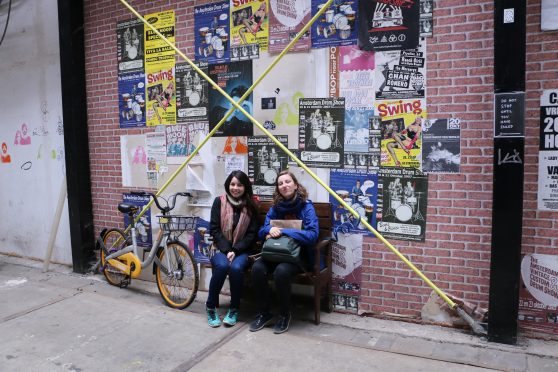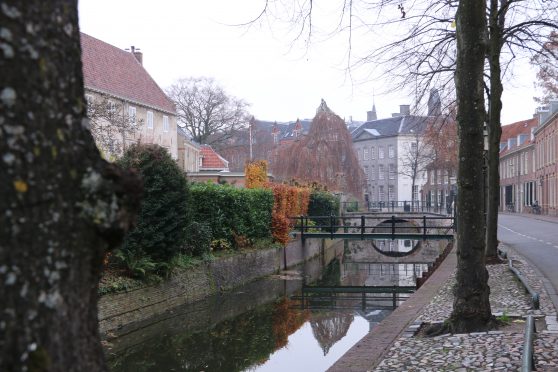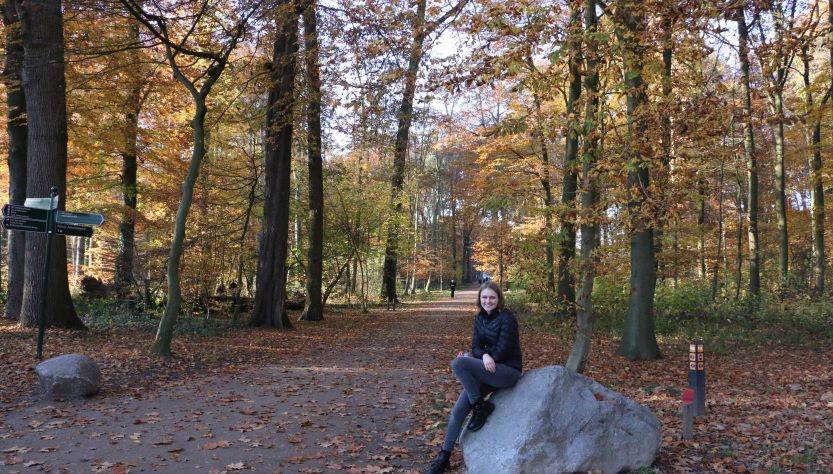Pre-departure:
I should first and foremost give a bit of context for my ‘situation’, which may be applicable for people similar to myself. I didn’t receive a lot of guidance on how to handle my particular health issues and type of medication, which isn’t surprising, due to the rarity of people with one of my chronic illnesses – ankylosing spondylitis, a type of arthritis which primarily attacks the spine and causes the slow fusion of vertebrae. I didn’t expect to receive a lot of guidance from the university on how to handle being abroad with AS, but hope that my experience will be used in the future for people who have similar relatively unknown conditions which require a lot of planning ahead for travel. The medication which I’m on is not only several thousands of rand more expensive than my rent, but it needs to be kept at a temperature between 2-8 degrees Celsius and comes in glass. It’s perhaps unnecessary to describe how on edge I was about travelling internationally by myself with this obscure, expensive and fragile medication.
Applications to a medical board and Discovery healthcare for a 6 month supply of the medication was actually the easiest part of the complete application process for me, actually. The most frustrating was that of the VISA, which was due to how long it took for AON student healthcare to approve covering my international travel – in fact, they asked me to send them my results because they doubted that I could even be able to study with the daunting list of health problems I had to declare! But, in general, things went smoothly, and Utrecht University was good at guiding me through the process. However, the process for applying for student accommodation via SSH was exceptionally stressful – it opens up at 9 a.m. and you have to have a place reserved within the first 10 minutes, and you’ll have to pay a massive sum of money within 24 hours. If you don’t have a place on the first day, wait for 9 a.m. the next day and keep refreshing until a place – which hasn’t been paid for by the person who reserved it – comes up. This worked for a friend of mine. Moreover, I would suggest not trying private flats if you can’t be there physically to seal the deal; my flatmate from Chile was scammed out of 200 euros through one of these, and to say that the websites and Facebook pages dedicated to these flats are sketchy is an understatement.
Another good idea is to arrange bicycle renting prior to arrival. Bicycles are expensive, and rented bicycles tend to not be stolen as much as others. Ultimately, it worked out cheaper for me to rent a bicycle. I only applied after arriving, so had a few weeks where I had to walk to class. It wasn’t bad to walk, but it’s certainly better to cycle – the Netherlands is made for cycling!
My flight and arrival was stressful and exhausting, largely due to medication and health, and I didn’t really enjoy my first day at all. But once I settled in, things became a lot nicer, and I had lovely flatmates to help me feel more optimistic about my time.
Living and Studying at Utrecht:
Utrecht University provides an experience which is honestly very different to that at Stellenbosch. Firstly, it’s a lot more academically-centred; I learnt more about research paper writing and the various debates within fields of study than I did in Stellenbosch, and this is not only refreshing but also very exciting for someone who has an interest in the academic process. Secondly, it’s a lot more ‘chill’ – I never felt extremely stressed over the subjects which I took, and everything about the student culture was a lot more laid back. Nonetheless, I felt as though I learnt so much information and was able to soak up all the subjects completely. Honestly, you’ll realise that there are easier ways to learn the same context without as much anxiety, and that makes the experience extremely rewarding.

Abandoned warehouse in Amsterdam which I stumbled across – two of my flatmates are pictured
The subjects which I took are also unavailable in Stellenbosch, and their structure allowed me to reflect on them more often than I would in Stellies. Consequently, I grasped a better idea of where my passions lay, and left Utrecht University knowing what paths I wanted to take for academia and career. In contrast to my friends at Stellies, I felt at ease with my future and knew what I found fulfilling. But this isn’t only about the subjects which I took and the university’s structure. It is also very much about going abroad and seeing the world from a different perspective.

I’ve lived in the Middle East and South Africa, and I have a love for the quirks and personality which developing nations have. So, going to the first world for a long period of time was a way for me to understand not only how the other side works, but what they think of the developing world. In South Africa, there is plenty of talk – especially among the educated class – about leaving and making their wealth in Europe, Australia or North America. But my experience in Utrecht actually made me appreciate much of South Africa, although that isn’t to say that I didn’t enjoy the Netherlands. In fact, I loved plenty of it, and believe that I will visit Europe again, but I also had the compulsion to take the knowledge I gained there and apply it to my home country. I feel like my other Stellenbosch exchange students had the same mindset – we drove one of our lecturers a little mad whenever we raised our hands in seminars and said something along the lines of ‘but how would this apply to a country with surplus labour and land, like South Africa?’
There’s a few pieces of advice which I have to give with regards to living abroad, particularly in the context of Europe.
- Form study groups and divide up the workload, so that you share notes. There were dozens upon dozens of readings which had to be studied, and splitting up that work gave us each a lot of free time to travel. It also probably benefitted our grades immensely!
- Use the opportunity to look at South Africa from the perspectives which the institution and society grant, and further understand why there is such a gap in wealth.
- Reflect on what this experience is doing for your future plans, desires and hopes. Maybe you want to move to Europe because of your experience, maybe you decide that Europe isn’t for you, and maybe you find out that there’s a field of academia which you want to explore. You’ll have a lot of time to develop as a person and think about your path.
- Travel where you want to, if you want to, when you want to. Don’t be pressured to travel more or less than you’d like to. Exchange students can feel pressured either way, and it’s important to follow what you want, not what the herd wants.
Returning Home:
When I left, it felt like I slipped and ended up back in Stellenbosch in a single fall. Everything was so quick. My flatmates were staying longer and planning to travel all throughout February, but they were only to start classes in March and I didn’t have that luxury. I had a single week off – in which I travelled home and moved to a new apartment – before starting with the next semester. It is a shame that I couldn’t stay longer to travel like my flatmates could have. If you have the chance to travel before arriving, I would recommend doing so, but my situation with my medication (which is capped to 6 months supply due to the rigid regulations around it) did not permit that. But that won’t be the situation for most people, so please do travel around before you start your semester.
I’ve adjusted back to driving, South African culture and weather effortlessly, to my surprise. I thought I would have to struggle to deal with a 50 degree change in outside temperature, but that hasn’t been the case. And I wasn’t nearly as clueless behind the wheel as I thought I would have been. Ultimately, I feel like I’m back at home. But, at the same time, I still feel like I’m in Utrecht. It’s strange, like I haven’t yet processed the fact that I left the Netherlands. Maybe it still needs some time to sink in.
I’ve come home feeling like I’ve changed for the better. My time abroad has equipped me with knowledge which I may not have come across in my undergraduate degree at Stellenbosch. It has also given me a better understanding of what subjects exactly kindle my passions, and hence what academic and career choices I should make. My skills in academic writing has benefitted tremendously. I have networked with people from all over the world, and thus have individuals whom I can rely on when I travel again. I have experience from the first world which I can use in my future career, as well as choices I will make for my life. I have also honed study and groupwork techniques which I intend to employ in the future in all sorts of situations and learnt the importance of taking time off the week to explore the place I live. Coming back home, I feel invigorated, optimistic and driven. Although there were plenty of challenges – ranging from adjusting to the Dutch bluntness to getting lost in Frankfurt without data – I feel like overcoming these have strengthened me and made me realise that I can handle a lot more than I previously thought I could.
Moreover, this opportunity abroad has helped me truly appreciate all which Stellenbosch University has taught me in stress management and balancing workload; it also complemented my degree perfectly, not only in the subjects which I could take but also by giving me a place to employ subjects like Intercultural Communication in the real world. I am truly grateful for the opportunity to go abroad.

